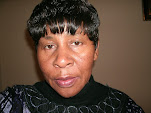WEDNESDAY, 08 FEBRUARY 2012 00:30
A great friend and successful Kikuubo businessman owns a fleet of cars.
Whenever he buys a new one, he first takes it to his home village where he performs some rituals at a traditional shrine. The ritual, according to Tom Galabuzi (not real names), guards the vehicles against accidents and thieves. The irony is that at the shrine, Galabuzi drapes the cars with rosaries he claims were specifically brought from the renowned Virgin Mary shrine of Fatima in Portugal.
Yet onlookers would never suspect that Galabuzi professes two religions; he is a staunch Catholic who attends mass regularly. Once, when I asked Galabuzi why he doesn’t simply call a priest to bless his newly bought cars he said: “It is true I come from a staunch Christian family, but I also strongly believe in certain traditional beliefs.
We were brought up believing there are problems both Christianity and traditional culture can solve together. Before Christianity came, didn’t our grandfathers believe in God?”
Galabuzi’s explanation reminded me of former Vice President Prof Gilbert Bukenya who, a few years ago, was almost excommunicated by the Catholic church for once performing ebigali (traditional rituals) at a shrine in Masaka. Bukenya, a regular church attendant who receives Holy Communion from the Archbishop himself, was perhaps trying to demonstrate that our African culture should be respected as well.
He, however, later apologized before the controversial issue blew out of proportion. Sometime later, police in Kampala arrested three suspected thieves in Kisekka market with the help of a witchdoctor from Kayunga. The witchdoctor administered some herbs on the suspects and later confirmed that those who collapsed were the real culprits.
And did I hear that before the construction work of the Bujagali power dam on River Nile began, the government had to negotiate and relocate a powerful and much-feared witchdoctor in the area, Bujagali? Indeed there are reasons why Africans live a double standard, professing Christianity on particular days and traditionalism on others. For some, it’s because of Christianity’s failure to resonate with their lives.
The Instrumentum Laboris of the 1994 African Catholic bishops synod commented that Christianity remains for many Africans “a stranger religion”.
“This is the source of a certain double quality in living their beliefs, holding them divided between their faith in Jesus Christ and customs or tradition practices.”
Theologians like Steve Nganda, once wrote about inculturation - the effort to make Christ and his message relevant to the people in a given culture. Nganda writes that people should have faith in both Christianity and the traditional values. Missing one, he says, is like missing both.
Writing about witchcraft, another theologian, G.M Tlaba, argues that when people practise witchcraft, it shows that Christianity has not yet had an impact as the African religion. Elsewhere, Joseph Ssekiwalyanga of Kyengera believes that there would not be any conflict if Christianity responded to all man’s day-to-day needs.
“Every day we hear radio announcements of magical witchdoctors claiming that they can solve any problem under planet earth and these tend to attract many youth into visiting their shrines.
“They claim they can revive lost love, enable people get American visas, instant riches and barren women to conceive,” he says.
Yet for people like Ssalongo Nicholas Mutumba of Musigula, Lubaga, there’s nothing wrong with witchcraft as long as no ritual killings or sacrifices occur.
“Despite being Christians, our family often converges in the village to offer sacrifices to traditional gods. This traditional ritual is part of our culture and is as old as the Buganda kingdom itself,” Mutumba says.
But not every Ugandan is enamoured by the witchcraft craze. James Kagoda, a boda boda operator along Luwuum street is amused that people flock to witchdoctors’ shrines to acquire riches.
“How do you expect a witchdoctor who wears torn shirts and lugabire [sandals] to enable you become a millionaire when he himself wallows in poverty?” he asks.
And, of course, religious leaders are unhappy that some of their flock visit shrines. Rev Fr Anthony Musuubire of Kigowa-Ntinda Catholic parish says witchcraft of any sort should have no place in the lives of true Christians.
“Christians should accept Jesus Christ as the sole provider to all their needs,” he says.
Fr Musuubire attributes the problem to some churches’ failure to reach out to its people, leaving them no option but to seek traditional engagements. And what does the Bible say? Throughout Jesus Christ’s life, He is seen constantly engaged in battle against evil spirits.
Since Christ in the gospel encountered the devil, it is entirely proper for Christians to believe in the existence of Satan and evil practices like witchcraft. Perhaps they should read St. Paul’s warning to the Galatians:
“I am amazed that you are so quickly forsaking the one who called you by the grace of Christ for a different gospel. But there are some who are disturbing you and wish to pervert the gospel of Christ” (Gal 1:6-7)
Elsewhere, a great Italian scholar, St. Thomas Aquinas once taught that everything that demons do is subject to God’s consent. He taught that dewmons could indeed perform miracles by clever deceit and tricks, but their power is always secondary to and dependent on the power of God.
musengeridavid@yahoo.com






No comments:
Post a Comment